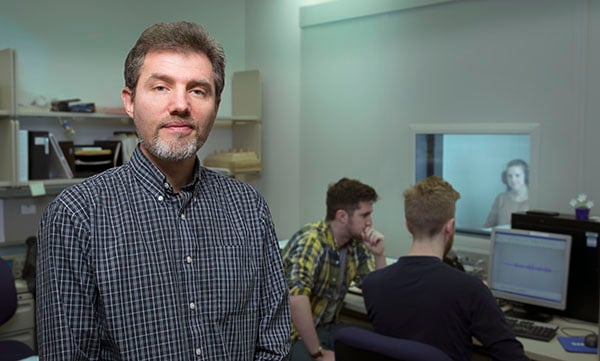2016 Clinical Research Grant, 2008 New Century Scholars Research Grant, 2007 New Investigators Research Grant
Reclaiming Sound
 As average life expectancy continues to increase in the United States and other countries around the world, it is inevitable that hearing loss will increase. "The good news," says Valeriy Shafiro, associate professor in the Department of Communication Disorders and Sciences at Rush University and the recipient of a 2016 ASHFoundation Clinical Research Grant, "is that hearing loss is preventable in many cases and its negative consequences can be effectively treated in a number of ways."
As average life expectancy continues to increase in the United States and other countries around the world, it is inevitable that hearing loss will increase. "The good news," says Valeriy Shafiro, associate professor in the Department of Communication Disorders and Sciences at Rush University and the recipient of a 2016 ASHFoundation Clinical Research Grant, "is that hearing loss is preventable in many cases and its negative consequences can be effectively treated in a number of ways."
For those who do not benefit from hearing aids, currently the most common intervention, Shafiro notes that cochlear implants (CIs) have been found to be highly effective in restoring functional hearing. But not always. Some CI recipients struggle even after implantation and others experience hearing improvement and then reach a plateau and continue to have significant communication problems despite the initial improvement.
Shafiro's ASHFoundation-funded work is focused on helping these people. His "long-term goal," as he explains, "is to make effective, easily accessible and affordable auditory online rehabilitation programs available to those who hear the world through their CIs." He intends to develop "a suite of Internet-based auditory training exercises and counseling modules that can be tailored to the needs of specific individuals." As the availability of the Internet increases worldwide, Shafiro envisions that these training programs will become increasingly accessible to people—not only those with CIs but individuals with other hearing impairments as well—who would otherwise not be able to obtain aural rehabilitation.
Shafiro comes to his work with a background in nursing and psychology and, therefore, an especially sensitive understanding of what people with hearing loss experience beyond their actual physical disorder. After hearing little for a long time, for example, people’s memory for sounds may decline as well. When they hear once again through a CI, music, speech, and other environmental sounds will seem different. So might the crying of a baby. They may ignore the honking of horns in traffic because it’s a sound they no longer recognize. In these cases, the inability to hear a baby cry or to respond to a warning horn, the failure of memory at best may be frustrating but, at worst, could have dangerous consequences.
To Shafiro, such examples underscore the need to include sounds other than speech in aural rehabilitation. Environmental noises, music, singing birds, and the cries and laughter of children are fundamental parts of our experience of the world through sound and may hold deep emotional connections for people. "Speech perception is extremely important," Shafiro recognizes, "but there is so much more to what people need and want to hear."
Shafiro’s work, thanks in part to his earlier 2007 ASHFoundation New Investigators Research Grant—and its important support of his study at its initial stages—led to an R03 grant from the National Institute on Deafness and Other Communication Disorders that allowed him to further develop his research program that, in turn, is now supported as well by his current ASHFoundation grant.
"The ASHFoundation has a long-standing tradition of excellence," he believes, "a well-developed organizational support structure for young and mid-career investigators and a healthy and audacious appetite for new research that can shape the future. I’m very grateful for its belief in my work over the years. Donors to the ASHFoundation can be assured that their money will continue making an impact in the field of communication sciences and disorders for many years to come."
View More Recipient Spotlights